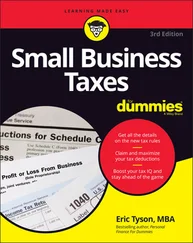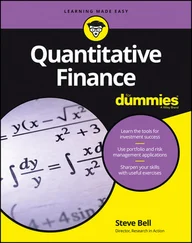2 Calculate your net worth from one year ago.You can determine your year-ago net worth by tallying your financial assets (savings and investments) from one year ago and subtracting your financial liabilities (loans and debts) from one year ago. Don’t count your home as an asset or your mortgage as a liability. Your concern here is financial assets.
3 Correct for any changes in value of investments you owned the past year.Suppose that your net worth today is $15,000, whereas one year ago it was $10,000. You might conclude from the change in your net worth that you’ve saved $5,000 ($15,000 − $10,000), but that figure may not be correct, and here’s why. A year ago when you had a net worth of $10,000, you presumably had savings and investments, and those would have changed in value over the past year. Suppose you made some good investments and they produced $1,000 in returns (from interest, dividends, appreciation, and so on) over the past 12 months. Though you’re happy to have made $1,000 on your investments, that money isn’t new savings and shouldn’t be counted in your savings-rate calculations. So you really saved $4,000 ($5,000 − $1,000).Conversely, if your net worth was reduced over the past year by declines in the value of your investments, you should add back that figure when determining your savings rate. If your investments declined by $1,500 in value over the past year, you really saved $6,500 ($5,000 + $1,500). Table 1-1walks you through this part of the analysis.
TABLE 1-1Your Savings Rate over the Past Year
| Calculate your net worth now and one year ago |
| Today |
One Year Ago |
| Savings & investments $_____________________________________________________ |
Savings & investments $____________ |
| – Loans & debts $_______________________________________________________________________ |
– Loans & debts $___________________ |
| = Net worth today $_____________________________________________________ |
= Net worth a year ago $____________ |
| Correct for changes in value of investments you owned the past year |
| Net worth today |
$____________________________________ |
| – Net worth a year ago |
$____________________________________ |
| – Appreciation of investments (over past year) |
$____________________________________ |
| + Depreciation of investments (over past year) |
$____________________________________ |
| = Savings amount |
$____________________________________ |
| Annual gross income |
$____________________________________ |
| Savings rate (savings amount divided by your annual gross income) |
___________________________________ % |
 If you have debt that you’ve been paying down over the past year, you can count the principal payment reduction on that debt as savings. For example, suppose a year ago you owed $5,000 on an auto loan. Now, a year later, you owe just $4,500. You can count that $500 reduction in what you owe as new savings.
If you have debt that you’ve been paying down over the past year, you can count the principal payment reduction on that debt as savings. For example, suppose a year ago you owed $5,000 on an auto loan. Now, a year later, you owe just $4,500. You can count that $500 reduction in what you owe as new savings.
Understanding and Improving Your Credit Score
If you expect to someday apply for a loan of any type and get a competitively low interest rate, you should understand your credit report and credit score and how to improve each. A credit report is basically your credit history, while a credit score is a three-digit score based on the information in your personal credit report. This section highlights what you need to know about your credit score and reports, including how to obtain and improve them. Chapter 4provides more insight into managing your credit report and credit score.
Deciphering how lenders use credit reports and scores
Most people borrow money at various times in their life, whether it’s to buy a home (or other real estate), to finance a small business, pay for educational expenses, or for other purposes. When you want to borrow money, lenders examine your credit report and your credit score(s) to determine how responsible you’ve been with credit and to help them decide whether they should lend you money (and if so, how much to charge you based on your creditworthiness habits).
Specifically, lenders examine your history of credit usage in your credit report. This information tells the lender when each of your accounts was opened, what the recent balance is, your track record of making payments on time, and whether you’ve defaulted on any loans. A credit report also tells a prospective lender where else you’ve been applying for credit most recently.
Lenders use your credit score to help them predict the likelihood that you’ll default on repaying your borrowings. The higher your credit score the better, because a high credit score means that you have a lower likelihood of defaulting on a loan. Thus, more lenders will be willing to extend you credit and charge you lower rates for that credit. It’s important for you to know your credit score because a high credit score puts you in a negotiating position to ask for better rates. Lenders are in the moneymaking business and many don’t automatically give you the best rate for which you qualify.
The most widely used credit score is the FICO score, which was developed by the FICO company (formerly known as Fair, Isaac and Company). FICO scores range from a low of 300 to a high of 850. Most scores fall in the 600s and 700s, and the median is around 720. You generally qualify for the best lending rates if your credit score is in the mid-700s or higher.
Obtaining your credit reports and fixing errors
You want to get your hands on your credit report so you know what lenders are reviewing. You’re entitled to receive a free copy of your credit report (which does not contain your credit score) every 12 months from each of the three credit bureaus — Equifax, Experian, and TransUnion. If you visit www.annualcreditreport.com , you can view and print copies of your credit report from each of the three credit agencies. (Alternatively, you can call 877-322-8228 and request that your reports be mailed to you.) You could also order your credit report from a different bureau every four months.
When you obtain your reports, inspect them for possible mistakes. Credit-reporting bureaus and the creditors who report credit information to these bureaus make plenty of errors.
If your problems are fixable, there’s no need to hire someone to do so for you — you can fix them yourself, but you will likely have to make some phone calls or submit a dispute online via email or by writing a letter or two.
Some credit-report errors arise from other people’s negative information getting on your credit report. This can happen if you have a common name, have moved a lot, or for other reasons. If the problematic information on your report appears not to be yours, tell that particular credit bureau and explain that you need more information because you don’t recognize the creditor.
Creditors are the source of some reporting mistakes as well. For example, perhaps a bill you paid off is still incorrectly being reported as a balance you owe. If that’s the case with your report, write or call the creditor to get the incorrect information fixed. Phoning first usually works best. (The credit bureau should be able to tell you how to reach the creditor if you don’t know how.) If necessary, follow up with an email (preferred because it leaves a trail) or letter. You can also dispute errors online directly with the credit reporting agency.
Читать дальше

 If you have debt that you’ve been paying down over the past year, you can count the principal payment reduction on that debt as savings. For example, suppose a year ago you owed $5,000 on an auto loan. Now, a year later, you owe just $4,500. You can count that $500 reduction in what you owe as new savings.
If you have debt that you’ve been paying down over the past year, you can count the principal payment reduction on that debt as savings. For example, suppose a year ago you owed $5,000 on an auto loan. Now, a year later, you owe just $4,500. You can count that $500 reduction in what you owe as new savings.










